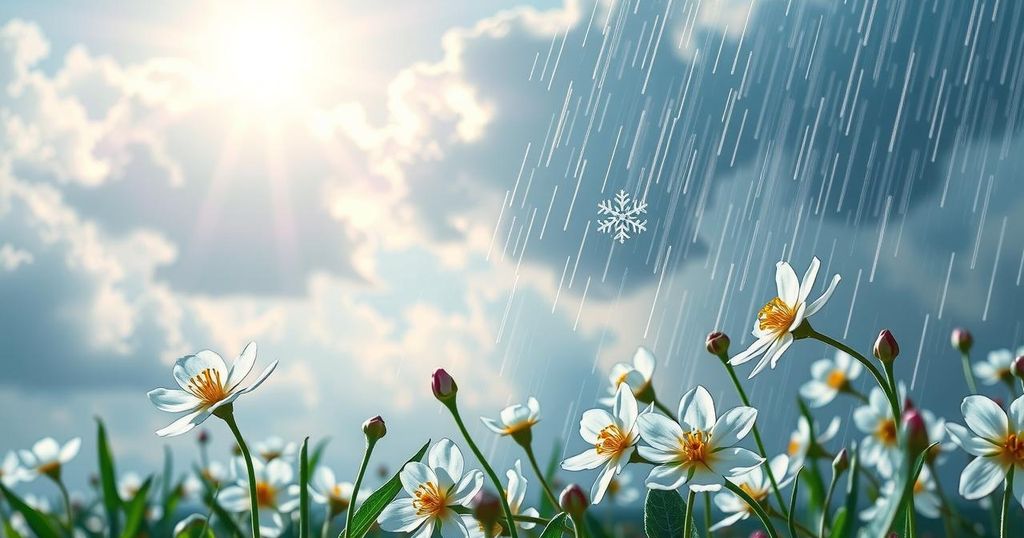The onset of 2025 witnessed extreme weather, with destructive winds and record shifts in temperature attributed largely to climate change. Recent scientific advancements allow for clearer connections between such disasters and global warming. Although not every weather change is causally linked to climate change, there is now discernable evidence of its substantial influence on weather events globally.
The year 2025 commenced with considerable weather phenomena, including strong winds in Southern California that fueled unprecedented wildfires and severe winter storms affecting the Mid-Atlantic and Southern regions. Concurrently, scientists announced that human-induced climate change rendered 2024 the hottest year on record. Whereas past climate scientists refrained from connecting singular weather events to anthropogenic climate change, advancements in recent years have enabled researchers to attribute such disasters as heat waves, hurricanes, and wildfires to climate change.
Not every shift in weather can be traced back to climate change; however, the escalating global temperatures are now observable in many severe weather occurrences. Justin Mankin, a climate scientist at Dartmouth College, asserts that climatic trends are creating new weather phenomena that may have previously been unfathomable. The distinction between climate and weather is essential, as scientists illustrate: climate is what one prepares for, while weather represents immediate conditions.
The climate of an area is commonly defined as the average weather over a 30-year interval. Therefore, while unusual weather events contribute to climate assessments, they are not as significant as prevailing conditions, notes Deepti Singh, a climate scientist at Washington State University. Experts anticipate continued variations in daily weather patterns despite the ongoing influences of climate change.
Since the mid-1800s, global temperatures have increased by approximately 1.3 degrees Celsius due to extensive fossil fuel combustion. The resultant environmental pollution traps heat in the atmosphere and gradually warms the planet’s air, oceans, and land. This rise in temperature may not always manifest in obvious weather changes but likely affects daily climates in subtle ways, according to Singh.
There has been a decrease in freezing days across various regions in the United States, with areas such as Michigan and Ohio experiencing a reduction of over a week of freezing temperatures compared to a world without climate change. Moreover, the frequency of heat waves has surged, tripling in the U.S. since the 1960s. A warming climate also disrupts complex atmospheric and oceanic patterns, sometimes producing unprecedented weather events.
The topic discussed revolves around the increasing frequency and intensity of extreme weather correlated with human-induced climate change. Climate scientists have realized that while individual weather anomalies may not always be directly linked, there is significant evidence demonstrating how climate change has shifted weather patterns over time. Understanding the difference between climate and weather is crucial for analyzing these changes and their implications for future weather scenarios.
In conclusion, while not every unusual weather event is directly attributable to climate change, the ongoing rise in global temperatures is causing palpable changes in weather patterns and occurrences around the world. The advancement in scientific techniques allows researchers to better analyze and attribute these phenomena to human activities, highlighting the necessity for continued awareness and action regarding climate change.
Original Source: www.delmarvapublicmedia.org






